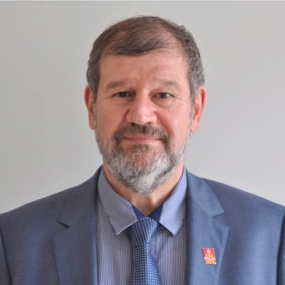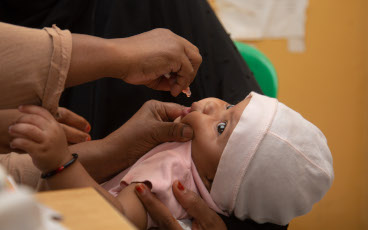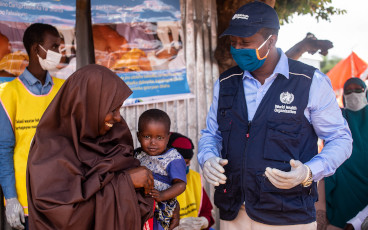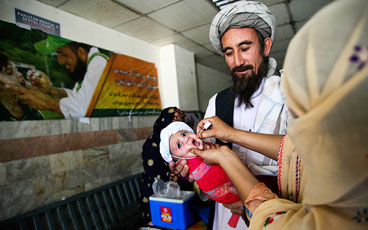
For almost five years I have had the immense privilege of heading Polio Eradication at WHO, representing the agency as we lead the Global Polio Eradication Initiative and work towards our goal of a polio-free world. Since 1988, we have reduced incidence of polio by 99.9% and more than 18 million people are walking today who would otherwise have been paralyzed. We are so close to achieving global eradication of this disease – only the second human disease ever to be eradicated, after smallpox. Now, as we progress our strategic plan to end polio by 2023, it is time to pass on the baton.
Over the last few years, we have endured daunting challenges: Fighting outbreaks in three WHO regions, battling against vaccine misinformation and facing setbacks to the eradication of polio in Afghanistan and Pakistan. I have also witnessed incredible progress made: Eradicating wild polio type 3 worldwide, succeeding against the virus in war-torn Syria, overcoming wild polio in Nigeria, and developing a new, more stable oral vaccine. We have also been joined in our efforts by Gavi, the Vaccine Alliance, who further strengthen our partnership.
Our impact is magnified as polio teams lead COVID-19 response operations in vulnerable contexts across the globe.
What kind of person can carry us over the finishing line to a polio-free world? From my experience I believe certain qualities are a must: a strategic thinker and a diplomat; a background in epidemiology; an engaged manager; someone with diverse field experience. They must navigate effectively between all three levels of WHO, and effectively bring the Global Polio Eradication Initiative partners together to achieve a polio-free world. They must be excited by the opportunity to engage with diverse actors – from technical colleagues and civil society representatives, to the vaccine industry. Science has paved the way to polio eradication, but it is people – and people skills – that will take us to the destination.
My successor will be joining the programme at a truly challenging time for polio eradication and for public health. To me, this also presents a unique and motivating opportunity.
In a post-COVID-19 world, our new director will lead on efforts to further define and adapt our approach to respond to the immense challenges raised by the pandemic.
Polio eradication is an exhilarating project to lead in part because the programme has the capacity to both end polio and make a significant contribution to broader global health goals. Already we are supporting countries to make life-saving gains: Increasing access to healthcare in the most remote places, strengthening routine immunization systems, implementing our gender strategy and ensuring strong disease surveillance for polio, COVID-19 and other diseases.
This job offers the opportunity to steer and influence how we integrate with other health programmes over the coming years and secure lasting assets for communities long after poliovirus is defeated.
Overcoming the last and hardest mile will require commitment and creativity. The role calls for out-of-the-box thinking and action in numerous programmatic areas: on financing, outbreak response, and ensuring adequate vaccine coverage for the hardest-to-reach children in Afghanistan and Pakistan, the only two countries that remain wild polio-endemic. My successor must simultaneously look beyond eradication of the last virus in the wild, towards safely containing all polioviruses that are kept for study post-eradication.
My experiences over the last few years have confirmed to me that this is one of the most exciting and rewarding challenges in global health, to help rid the world of a human disease for only the second time.
If you are a global health leader with the requisite passion, experience and vision for a world where no child suffers polio paralysis ever again, I will be honoured to pass on the baton to you.
Deadline: 15 July 2020



